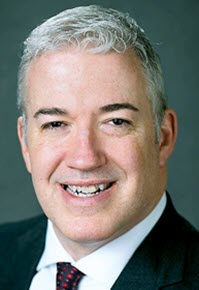Abstract
Excerpted From: Brendan Williams, Patriot Games: Title 42 and the Failure of U.S. Immigration Policy, 8 Howard Human & Civil Rights Law Review 77 (2023-2024) (179 Footnotes) (Full Document Requested)
 In his final speech as president, Ronald Reagan extolled immigration, stating that with “each wave of new arrivals to this land of opportunity, we're a nation forever young, forever bursting with energy and new ideas,” and warned that “[i]f we ever closed the door to new Americans, our leadership in the world would soon be lost.”
In his final speech as president, Ronald Reagan extolled immigration, stating that with “each wave of new arrivals to this land of opportunity, we're a nation forever young, forever bursting with energy and new ideas,” and warned that “[i]f we ever closed the door to new Americans, our leadership in the world would soon be lost.”
Much has changed.
In 2015, Donald Trump began his campaign for the presidency by referring to Mexican immigrants as “rapists.” During that campaign, he attacked a U.S.-born judge overseeing litigation against him, identifying him as a “Mexican.” He claimed that he would force Mexico to pay for a new 1,000-mile wall on the U.S.-Mexico border. As president, he derided immigrants from “shithole countries,” talked about trading the U.S. territory Puerto Rico for Greenland; ran a 2018 anti-immigration campaign ad so shockingly racist even Fox News refused to air it; and suggested deporting four progressive women of color serving in the U.S. House to “the totally broken and crime infested places from which they came” - despite three being born in the United States.
Trump took his lead on immigration from a key advisor, Stephen Miller. In 2019, senior policy adviser Stephen Miller goaded Trump in his threats to close the border, warned him of the dangers of looking weak, and encouraged the president's sudden purge of his homeland security team. Miller--a fiery ideologue--has repeatedly advocated cutting legal immigration, rethinking the country's asylum policies, and implementing harsh measures to secure the southern border. Even Homeland Security Secretary Kirstjen Nielsen - the public face of Trump's policy of separating migrant children from their parents at the U.S.-Mexico border - was deemed insufficiently tough on immigration and forced to resign.
Miller's hostility to multiculturalism dates back to his youth. As a young conservative in liberal Santa Monica, Calif., Stephen Miller frequently clashed with his high school, often calling into a radio show to lambaste administrators for promoting multiculturalism, allowing Spanish-language morning announcements, and failing to require recitation of the Pledge of Allegiance. Early in the Trump Administration, he played the “central role crafting the order imposing a 90-day ban on citizens of Iraq, Syria, Iran, Libya, Somalia, Sudan and Yemen from entering the United States[.]” He has been described as obsessed with boosting deportations.
COVID-19, which Trump characterized as the “Chinese virus” or “kung flu,” became a pretextual reason for Miller to achieve his aims of blocking immigration, as he sought to use communicable diseases as an excuse to block immigration even before the COVID-19 pandemic. In 2020, it was reported that Miller “long wanted” to use the federal law that grants power to the surgeon general and president to block people from entering the United States when it is necessary to avert a “serious danger” posed by the presence of a communicable disease in foreign countries. This law is referred to as Title 42.
There can be no doubt that the U.S. has a problem with unauthorized entry on its southern border. In 2022, for example, the U.S. reported 2.2 million apprehensions of migrants entering the country compared with almost 1.7 million the year before, the previous record. The burden of unlawful border crossings has been crushing for border communities like El Paso, Texas - a city that is welcoming to immigrants. New York City, which has taken in undocumented immigrants, reportedly spent $366 million in 2022. Indeed, by June 2023, New York City had spent $1.2 billion on migrants since the prior summer, a bill projected to reach $4.3 billion in a year, and was “housing more than 48,000 migrants across an array of hotels, dormitories, and makeshift shelters that now span 169 emergency sites.”
Yet our legal system must not be circumvented, and as the Washington Post editorialized, Title 42 was “a border-control tool masquerading as a public health order.” Congressional inertia on immigration reform cannot excuse such artifice.
This article examines Title 42 against the current immigration landscape in the U.S. It begins by outlining the history of Title 42 and explaining the efforts to end its usage under President Biden, which were, paradoxically, accompanied by efforts to expand it. It then details the decades-long failure of Congress to substantively address immigration in contrast to its successes in the now-distant past. It assesses how politically toxic immigration demagoguery has become, with the invocation of Title 42 being but the latest symptom. Finally, it discusses how our immigration blockade is both immoral and economically self-defeating.
[. . .]
In conclusion, as one legal scholar wrote, “criminalization and exploitation of immigrants did not start nor end with the Trump administration. The United States has a long history of rendering immigrants exploitable and expendable, perpetuated and sustained through decades of racist and xenophobic policy
[. . .]
s immigration politics, including the fraud that was Title 42's deployment, are but a part of that continuum. If Title 42 had not existed, another fig leaf would have been invented to excuse exclusion. Our U.S. immigration status quo can only be viewed as unsustainable, whether one's perspective on it is secularly economic, aligned with business groups calling for immigration reform, or moral. And yet, there is no end in sight.
Brendan Williams is an attorney and longtime advocate for civil rights who runs a long-term care association in New Hampshire.


